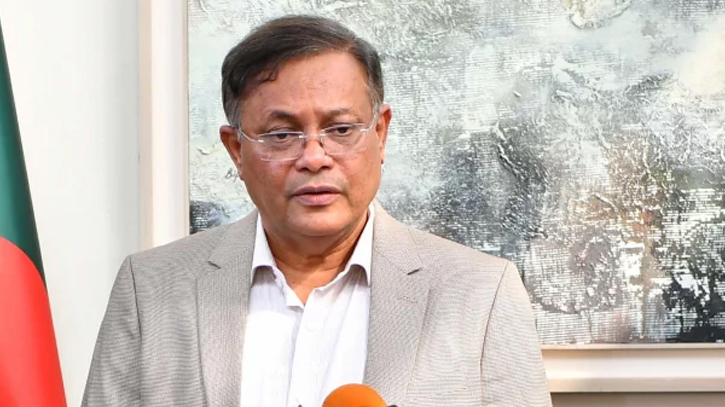
Foreign Minister Hasan Mahmud. Photo: Collected
Foreign Minister Hasan Mahmud on Wednesday (15 May) said they are working on ensuring quality, inclusive and transformative education for the children, and also dedicated health services, guidelines and counseling for adolescents.
"With our Prime Minister in the lead, we have taken a whole-of-society approach to eliminate child marriage, child labour and malnutrition that continue to feature as outstanding challenges," he said while speaking at the inaugural session of an international conference in Dhaka.
In parallel, Hasan said, they are enhancing the support schemes for the senior citizens, while promoting international norm-setting for protecting their rights.
"We underscore the importance of advancing inter-generational equity, be it for climate action, environmental conservation or digital transformation," he said.
The Prime Minister also spoke at the event as the chief guest.
The governments of Bangladesh, Bulgaria and Japan, together with UNFPA, are hosting the two-day event titled “ICPD30 Global Dialogue on Demographic Diversity and Sustainable Development”.
UNFPA Executive Director Dr Natalia Kanem; State Minister for Health and Family Welfare, Bangladesh Dr Rokeya Sultana; Parliamentary Vice-Minister for Foreign Affairs, Japan, Yasushi Hosaka; and representative from the Government of Bulgaria joined the opening ceremony.
Bangladesh has a sound legacy of partnership with UNFPA built over the years, with focus on the cardinal principles of the ICPD Programme of Action.
"We look forward to updating our National Population Policy with UNFPA’s technical support so that we can address the entire breadth of our demographic diversity and inherent inequities," Hasan said.
He appreciated UNFPA’s expertise in building capacity of service providers for maternal, adolescent and child health at the grassroots, including in the Rohingya-impacted areas in Cox’s Bazar.
"We would be interested in developing a National Strategy on Youth, Peace and Security, with critical inputs from UNFPA and other concerned UN entities," Hasan said.
He said they stand ready to share and exchange their good practices with other developing countries, including those from Small Islands like the Maldives and Kiribati.
He said they would be happy to take forward the salient points from this Global Dialogue in Dhaka to the ongoing negotiations on the Pact for the Future to be adopted by world leaders in September 2024.
Now in her fifth tenure in office, Hasan said, PM Hasina has dedicated her services for the future generations – children and youth – as exemplified by her Vision-2041 for a “Smart Bangladesh” and “Bangladesh Delta Plan 2100” for developing a resilient and prosperous nation.
"Our present government has singled out youth empowerment to be a top priority to make the optimum use of our current demographic advantage," said the Foreign Minister.
"We have our policies geared at equipping our young people with the right education, skills sets and access to technologies that would help them actualize their full potentials as true global citizens," he added.
2024 is the 30th anniversary of the International Conference on Population and Development (ICPD).
The global dialogue will unpack global and regional population dynamics and diversity, covering topics such as intergenerational wellbeing and healthy aging, the future of population data, and the changing demography of rural communities, according to UNFPA.
Around 200 representatives from local and national governments, academia, think tanks, technical experts, civil society organizations, and the private sector will share practical insights into the investments in health, education, housing or infrastructure, population change that are needed to adapt to changing demographic trends.
This dialogue will honour that legacy by focusing on practical responses to demographic change that reinforce a human rights-based approach to population policies that put gender equality and reproductive rights at the core.
Messenger/Disha








